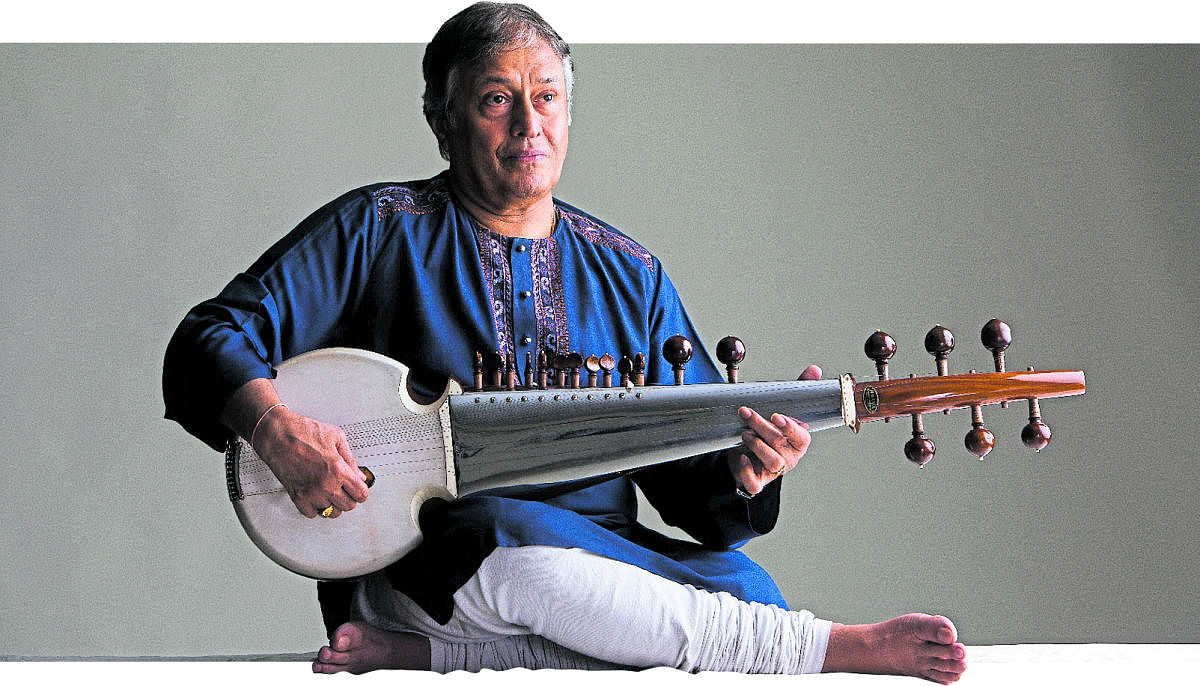
Sarod legend Ustad Amjad Ali Khan recently performed at the 26th edition of Parampara Series — The National Festival of Dance & Music at the Natya Tarangini Institute of Performing Arts, New Delhi. Khan presented his compositions set to various time cycles and traditional ragas. In this exclusive interview, he spoke to us, among other things, about reinventing himself during the pandemic, his goals for the coming years and teaching the sarod to his 10-year-old grandsons. Excerpts
You continue to modify and experiment with the sarod...
Music is the greatest wealth that I inherited from my forefathers — one that I am constantly sharing with the world. I believe in blessings and hard work. We can only do our best and leave the rest to the power up there. Music for me is a way of life. It’s not a profession but a passion. In a traditional musical family, most of the kids become responsible very early in life and they have a high sense of family pride. I was very fortunate that I was the youngest child of my father and guru Haafiz Ali Khan. I got the opportunity to be around my guru. Along with music, I was witness to the importance he gave to humanity, values of life and his complete surrender to God. I could not enjoy the freedom of my childhood though.
During the pandemic, you reportedly ‘reinvented’ yourself as a musician. Tell us about this in more detail.
The lockdown enabled a deeper connection with my music. With fewer distractions and no travelling, I was able to meditate with music in a much profound manner. Despite a lifetime with the sarod, I see so many fresh avenues opening up because I’m more mindful than ever. Apart from my daily musical sessions, I tried to reinvent myself during this time. I was also able to teach my grandchildren Zohaan and Abeer while working on my new releases with Joe Walsh, Sharon Isbin and Wu Man.
Tell us more about how you taught the sarod to your 10-year-old grandsons...
Perhaps the silver lining of the lockdown was that Ayaan could spend time and teach his twins. My 10-year-old grandsons, Zohaan and Abeer, are working hard. On my birthday in 2020, they gave me a big surprise and recorded and released a track called Our Love.
Learning never stops for an artiste. I feel that I am still a student and have so much more to learn. Adding to the celebrations and eternalising the spirit of 75 years of India’s Independence, all five of us recorded a special rendition of Vande Mataram, titled Three Generations — One Nation. For the first time ever, we were joined by the eighth generation of musicians of our family.
What do you feel about the future of the sarod, and its relevance for the next generation?
Creative people in every field sometimes become very arrogant. A lot of creative people don’t behave in a normal way. We have to be normal and humble. Behind every instrument, there has to be somebody whose music is appealing.
That is most important. We have so much talent now all over the world. Sarod is a difficult instrument like many others. However, since it doesn’t have frets, it’s harder for beginners. There are hundreds of sarod players today. The mantra is humility.
You will be turning 80 in another three years. What are your goals for the coming years and beyond?
I feel truly blessed and overwhelmed with all the love. A wonderful mystery of music is the fact that one can spend a lifetime trying to attain knowledge and perfection and still feel that one has only touched a mere drop of an ocean.
Along the journey of searching and discovering, the learning never stops! Its understanding changes with every year a musician lives.
What is your advice for the next generation of sarod musicians, who will carry its
legacy forward?
I am so happy to see the progress of young artists. They are very fortunate to get access to so much content today through YouTube, etc. However, to be a professional, you must learn from a teacher. My guru often told me that he did what he felt was right and I should do what I feel is right. I am really proud of the achievements of mankind but technology must be cultivated in harmony with peace and tradition.
What worries me is that the future children of this world should not behave or look like robots. To ensure thus, it is vital that modernisation must be accompanied by a reverence for academic traditions, which have been valued through times. We need kind and compassionate people in the world, and I see classical music as a means to nurture such feelings.